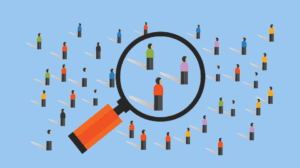In the heart of Uganda, the untapped potential of research consulting services beckons like a treasure waiting to be discovered. Data is the lifeblood of informed decisions, yet the challenge lies in ensuring that this data does not languish in a graveyard of missed opportunities but instead transforms into a goldmine of insights.
The Lure of Data Gold
Picture the vibrant landscape of Uganda, where every data point is a nugget of gold, waiting to be unearthed by skilled hands. Research consulting services in Uganda stand at the crossroads, guiding you away from the barren wasteland of data graveyards to the fertile fields of data goldmines. The secret lies in knowing how to sift through the sands and find those glittering insights.
Understanding the Data Graveyard
A data graveyard is a silent place, filled with forgotten files and irrelevant information. It’s where data goes to be forgotten, unused and unappreciated. Common causes include poor management, unclear objectives, and the relentless accumulation of irrelevant data. But with the right approach, this graveyard can be avoided.
Identifying a Data Goldmine
In contrast, a data goldmine is a repository of treasure, each data point valuable and ready to be transformed into actionable insights. The research consulting services in Uganda can help you uncover these riches. They turn data into a resource that drives decisions, sparks innovation, and fuels growth.
The Power of Effective Data Collection
The journey from data graveyard to goldmine begins with effective data collection. It’s about clarity, accuracy, and purpose. Avoid common pitfalls like collecting excessive or insufficient data, and instead focus on gathering what truly matters. Let the expertise of research consulting services in Uganda guide you, ensuring that every piece of data collected is a step closer to your goals.
Setting Clear Objectives
Without a clear destination, even the best map is useless. Set precise, aligned objectives for your data collection efforts. Whether your goal is to enhance customer satisfaction or drive innovation, your objectives should reflect this. For instance, if you aim to improve community health outcomes, your data should focus on health indicators and patient feedback.
Choosing the Right Tools
Selecting the right tools and methods is crucial. From simple surveys to sophisticated analytics platforms, the right tools make all the difference. Research consulting services in Uganda can recommend the best tools for your needs, ensuring efficiency and accuracy in your data collection efforts.
Organizing and Managing Data
A well-organized data repository is like a well-tended garden. Every piece of information is planted in its proper place, accessible and ready to flourish. Best practices in data management include systematic categorization, consistent naming conventions, and robust governance policies.
Ensuring Data Quality
Quality is the cornerstone of valuable data. Regular cleaning, validation checks, and quality metrics ensure that your data is accurate and reliable. With the guidance of research consulting services in Uganda, maintaining data quality becomes a streamlined process, paving the way for meaningful insights.
From Raw Data to Insights
Transforming raw data into insights requires skill and precision. Basic principles of data analysis, combined with the right tools, can reveal patterns and trends that were previously hidden. Research consulting services in Uganda offer expertise in tools like Excel, SQL, and advanced analytics software, ensuring your data analysis is both comprehensive and insightful.
The Art of Data Visualization
Visualizing data turns numbers into narratives. Tools like Tableau, Power BI, and Google Data Studio help create compelling visualizations that highlight trends and outliers. These visual stories make it easier to communicate complex information and derive actionable insights.
Interpreting Data for Decision Making
Interpreting data correctly is like deciphering an ancient script. It involves analyzing trends, understanding correlations, and drawing actionable conclusions. Real-world examples of data-driven decisions underscore the power of well-interpreted data. With the help of research consulting services in Uganda, your data can inform decisions that propel your organization forward.
Protecting Your Data
Data security is paramount. Encryption, access controls, and regular audits protect your valuable information. Compliance with regulations like GDPR and CCPA is essential to safeguard sensitive data. Research consulting services in Uganda provide the expertise needed to ensure your data remains secure and compliant.
Embracing Future Trends
The landscape of data collection and analysis is ever-changing. Emerging technologies like AI, machine learning, and big data analytics are revolutionizing the field. Staying ahead of these trends can provide a competitive edge. Research consulting services in Uganda are at the forefront of these advancements, ready to help you navigate the future of data.
Case Studies of Success
Consider the success stories of organizations that have turned their data into gold. These case studies illustrate the transformative power of effective data management and analysis. They offer valuable lessons and inspire confidence in the potential of well-utilized data.
Conclusion
In the vibrant heart of Uganda, data waits to be discovered and transformed. By partnering with research consulting services in Uganda, you can turn your data graveyard into a goldmine. Clear objectives, effective collection, quality management, and insightful analysis are the keys to unlocking the true potential of your data.
FAQs
- What is a data graveyard?
A data graveyard is a collection of unused, unorganized, and often irrelevant data that does not contribute to any meaningful insights or decision-making. - How can I avoid creating a data graveyard?
To avoid creating a data graveyard, set clear objectives for data collection, ensure data quality, organize and manage data effectively, and regularly review and clean your data. - What tools are best for data collection?
The best tools for data collection depend on your specific needs. Some popular options include Google Forms for surveys, SQL for database management, and more advanced tools like Apache Hadoop for big data. - How can data visualization help in understanding data?
Data visualization helps by presenting complex data in a visual format, such as charts and graphs, making it easier to identify patterns, trends, and outliers. - What are the best practices for ensuring data security?
Best practices for data security include encrypting sensitive data, implementing access controls, conducting regular security audits, and complying with relevant data protection regulations.
For more insights and expert guidance on transforming your data, visit research consulting services in Uganda.
Explore the treasures within your data with the help of Forbes’ comprehensive guide and Gartner’s insights on data trends.






